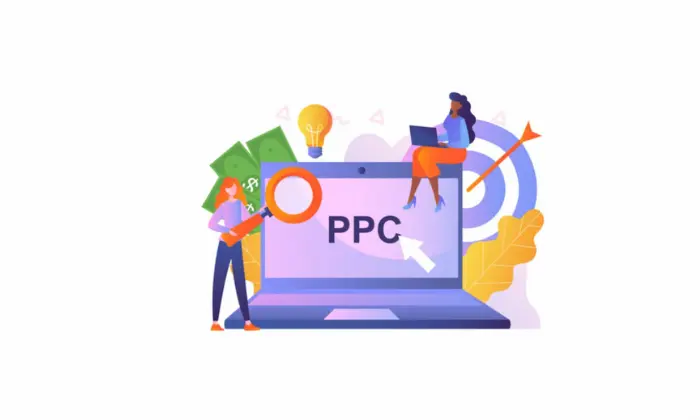PPC Intelligence Solutions by Local Pro1 Drive Success
PPC Intelligence Drive Success with Local Pro1's
Local Pro1 is a pioneering digital marketing firm specializing in providing small to medium sized businesses with advanced solutions to enhance their online advertising presence and achieve superior marketing outcomes. Leveraging PPC intelligence state of the art technologies and innovative strategies, Local Pro1 empowers businesses to navigate the complexities of digital marketing strategy with ease and efficiency. From local SEO optimization to sophisticated pay per click (PPC) campaigns, Local Pro1 is dedicated to driving measurable results and ensuring client success in a competitive edge into the digital advertising marketplace.
What is PPC Intelligence?

PPC Intelligence refers to the comprehensive use of data analytics and strategic actionable insights to enhance the effectiveness and efficiency of pay per click advertising strategy campaigns. It encompasses a range of techniques and tools designed to optimize every aspect of PPC management marketing, from keyword selection and ad placement to competitor analysis and performance tracking. The goal of PPC intelligence is to maximize return on investment (ROI) by making data-driven decisions that improve ad performance and reduce costs.
Key Components of PPC Intelligence
PPC intelligence is built on several critical components that collectively contribute to the success of PPC campaigns. These components include keyword analysis, competitor analysis, and performance tracking.
Keyword Analysis
Keyword analysis is the process of researching and selecting the most effective keywords for PPC campaigns. This involves identifying the search terms that potential customers are using and assessing their relevance, competitiveness, and potential ROI.
- Keyword Research: Identifying a broad list of potential keywords related to the business, products, or services. This typically involves using tools such as Google Keyword Planner, SEMrush, or Ahrefs.
- Keyword Relevance: Ensuring that the selected keywords are highly relevant to the business and the target audience.
- Search Volume: Analyzing the number of searches for each keyword to gauge its popularity and potential reach.
- Keyword Competition: Evaluating how competitive analysis for each keyword is, which affects bidding strategies and cost-per-click (CPC).
- Long-Tail Keywords: Identifying longer, more specific phrases that may have lower search volume but higher conversion rates due to their specificity.
Competitor Analysis
Competitor paid search involves examining the PPC strategies of competitors to identify opportunities and threats. This helps in refining one’s own PPC campaigns and staying competitive.
- Competitor Identification: Determining who the main competitors are in the PPC space.
- Ad Copy Analysis: Reviewing competitors’ ad copies to understand their messaging and identify strengths and weaknesses.
- Keyword Comparison: Comparing the keywords competitors are targeting with those in your campaign.
- Bid Strategies: Understanding competitors’ bidding strategies to adjust your bids accordingly.
- Landing Pages: Analyzing the design and content of competitors’ landing pages to gain actionable insights into their conversion strategies.
Performance Tracking
Performance tracking is the continuous monitoring and analysis of PPC campaign metrics to measure success and identify areas for improvement.
- Impressions: The number of times ads are displayed.
- Clicks: The number of times ads are clicked.
- Click Through Rate (CTR): The ratio of clicks to impressions, indicating ad effectiveness.
- Conversion Rate: The percentage of clicks that result in a desired action, such as a purchase or sign-up.
- Cost Per Click (CPC): Cost Per Click (CPC) is the price paid for each click on an advertisement.
- Return on Ad Spend (ROAS): Measures the revenue generated for every dollar spent on advertising.
- Quality Score: A metric used by platforms like Google Ads to measure the quality and relevance of ads, keywords, and landing pages.
By integrating these components, PPC intelligence provides a comprehensive approach to managing and optimizing PPC campaigns. This ensures that businesses can achieve their advertising strategy goals efficiently, stay ahead of competitors, and continuously improve their marketing performance.
Why PPC Intelligence Matters for Local Pro1

Leveraging PPC intelligence is crucial for Local Pro1 as it enhances the agency’s ability to deliver exceptional results for its clients. By utilizing advanced PPC strategies, Local Pro1 can optimize advertising campaigns, ensure better ROI, and maintain a competitive edge in the digital marketing landscape.
Benefits of Utilizing PPC Intelligence
Improved Targeting and Reach: PPC intelligence enables Local Pro1 to precisely target specific demographics, geographic areas, and user behaviors. This guarantees that ads are displayed to the most suitable audiences, boosting the chances of conversions and optimizing the efficiency of ad spending.
Cost Efficiency
To identify high-performing keywords and optimizing bids, Local Pro1 can reduce unnecessary expenditure on underperforming ads. This strategic allocation of budget helps clients get the most out of their advertising dollars.
Enhanced Ad Performance
Continuous analysis and optimization lead to higher click-through rates (CTR) and conversion rates. PPC intelligence helps in crafting compelling ad copies and selecting optimal ad placements, resulting in better overall campaign performance.
Competitive Advantage
Understanding competitors’ PPC strategies allows Local Pro1 to stay ahead in the market. By analyzing competitors’ keywords, ad copies, and bidding strategies, Local Pro1 can develop more effective campaigns that outperform the competition.
Data-Driven Decision Making
PPC intelligence provides valuable insights through data analysis. This helps in making informed decisions about campaign adjustments, keyword selections, and budget allocations, ensuring that every aspect of the PPC strategy is optimized for success.
Measurable Results
One of the key advantages of PPC advertising strategy is its measurability. PPC intelligence allows Local Pro1 to track and analyze every metric, from impressions and clicks to conversions and ROI. This transparency ensures accountability and continuous improvement.
Real World Examples of Successful PPC Campaigns
To illustrate the effectiveness of PPC intelligence, here are some detailed real world examples of successful PPC campaigns. These examples demonstrate how different businesses leveraged PPC strategies to achieve significant results.
E-commerce Boost
- Objective: Increase online sales for a local e-commerce store.
- Strategy: Utilizing PPC intelligence, Local Pro1 conducted in-depth keyword analysis to identify high-intent search terms. They optimized ad copies and landing pages based on competitor analysis and performance tracking.
- Results: The campaign achieved a 30% increase in conversion rates and a 25% reduction in cost-per-acquisition (CPA).
Local Service Provider
- Objective: Generate leads for a local plumbing service.
- Strategy: Local Pro1 used PPC intelligence to target specific local keywords and geographic areas. They implemented call-only ads to directly connect potential customers with the service provider.
- Results: The campaign led to a 40% increase in qualified leads and a significant improvement in the return on ad spend (ROAS).
Seasonal Promotion
- Objective: Drive traffic and sales for a seasonal promotion at a local retail store.
- Strategy: Local Pro1 leveraged PPC intelligence to create time sensitive ads and optimized bidding strategies to capitalize on peak shopping periods.
- Results: The campaign resulted in a 50% increase in store visits and a 20% increase in sales during the promotional period.
How PPC Intelligence Helps in Understanding Market Trends

PPC intelligence helps in understanding market trends by providing real time data and insights into consumer behavior, search patterns, and competitive analysis activities. Through continuous analysis of keywords, ad performance, and competitor strategies, businesses can identify emerging trends and shifts in market demand. This enables them to adapt their campaigns quickly, optimize their targeting, and stay ahead of the curve competition.
Real Time Data Analysis
PPC intelligence provides real time insights into consumer behavior, search trends, and market dynamics. This allows Local Pro1 to quickly adapt to changing trends and consumer preferences.
Trend Identification
By analyzing search volumes, keyword performance, and competitor activities, PPC intelligence helps identify emerging trends and market opportunities. Local Pro1 can adjust campaigns to align with these trends, ensuring relevance and effectiveness.
Customer Insights
PPC intelligence reveals valuable information about customer preferences, buying patterns, and pain points. This helps Local Pro1 create more targeted and personalized ad campaigns that resonate with the audience.
Forecasting and Planning
Historical data driven decisions and trend analysis enable Local Pro1 to forecast future market movements and plan campaigns accordingly. This proactive approach ensures that clients are always ahead of the curve.
Adaptability to Seasonal Changes
Market trends often fluctuate based on seasons, holidays, and events. PPC intelligence allows Local Pro1 to adjust campaigns in real time to take advantage of seasonal spikes in demand.
By integrating PPC intelligence into its marketing strategy, Local Pro1 can deliver superior results for its clients, ensuring they stay competitive and achieve their business objectives in an ever-changing digital advertising landscape.
Implementing PPC Intelligence Strategy By Local Pro1

Implementing a robust PPC intelligence strategy for Local Pro1 involves a series of well-defined steps. This guide provides a structured approach to building a successful PPC campaign that leverages data-driven insights to achieve optimal results.
Step-by-Step Guide to Building a PPC Intelligence Strategy
Implementing an effective PPC intelligence strategy involves several structured steps. Here’s a detailed guide to help Local Pro1 develop and execute a successful PPC campaign.
Setting Clear Objectives
- Define Campaign Goals: Determine what you want to achieve with your PPC campaigns.Goals might involve increasing website traffic, generating leads, driving sales, or improving brand awareness.
- Set Specific, Measurable, Achievable, Relevant, and Time-bound (SMART) Goals: For example, aim to increase online advertising sales by 20% over the next three months or generate 50 new leads per month.
Identifying Target Audience
- Audience Segmentation: Identify and segment your audience based on demographics, interests, geographic location, and behaviors.
- Persona Development: Create detailed buyer personas to understand the needs, preferences, and pain points of your target customers.
- Behavioral Insights: Use tools like Google Analytics to gather insights on your audience’s online behavior and preferences.
Conducting Keyword Research
- Initial Keyword Brainstorming: Start with a broad list of potential keywords related to your products or services.
- Keyword Tools: Utilize keyword research tools such as Google Keyword Planner, SEMrush, or Ahrefs to expand your list and identify high-potential keywords.
- Keyword Metrics Analysis: Evaluate keywords based on search volume, competition, and relevance. Focus on both high-traffic keywords and long-tail keywords that are more specific and may convert better.
- Negative Keywords: Identify and exclude negative keywords to prevent your ads from showing for irrelevant searches.
Analyzing Competitor Strategies
- Identify Competitors: Determine who your main competitors are in the PPC space.
- Competitor Keywords: Use tools like SpyFu or SEMrush to analyze the keywords your competitors are targeting.
- Ad Copy Analysis: Review competitors’ ad copies to understand their messaging and identify opportunities to differentiate your ads.
- Bid Strategies: Assess your competitors’ bidding strategies to inform your own bidding approach.
Landing Page Evaluation: Analyze competitors’ landing pages for design, content writing, and user experience insights.
Monitoring and Optimizing Campaigns
- Performance Tracking: Continuously monitor key metrics such as impressions, clicks, CTR, conversion rate, CPC, and ROAS using tools like Google Ads and Google Analytics.
- A/B Testing: Conduct A/B tests on ad copies, landing pages, and bidding strategies to identify what works best.
- Budget Management: Adjust budgets based on campaign performance, allocating more funds to high-performing keywords and ads.
- Bid Adjustments: Modify bids based on performance data to optimize ad placements and maximize ROI.
- Ad Refinement: Regularly update and refine ad copies and creatives based on performance insights and changing trends.
- Quality Score Improvement: Focus on improving Quality Scores by enhancing ad relevance, optimizing landing pages, and increasing expected CTR.
Successful PPC Intelligence Campaign By Local pro1
Local Pro1 successfully implemented a pay per click PPC intelligence strategy for a local e-commerce store specializing in eco-friendly products. The goal was to increase online advertising sales, improve conversion rates, and maximize return on ad spend (ROAS) over a three-month period. This case study details the steps taken, tools used, metrics tracked, and the resulting outcomes.
Campaign Objectives
- Increase online advertising sales by 30% within three months
- Improve conversion rate by 25%
- Achieve a ROAS of at least 5:1
Implementation Steps
- Initial Planning: Defined specific sales and conversion goals, with a timeline of three months.
- SMART Goals: Set clear, measurable objectives to track progress effectively.
Identifying Target Audience
- Segmentation: Identified key customer segments based on demographics (age, gender), geographic location, and interests in eco-friendly products.
- Persona Development: Created buyer personas for targeted advertising, focusing on eco-conscious consumers.
Conducting Keyword Research
- Tools Used: Google Keyword Planner, SEMrush.
- Keyword Selection: Identified high-intent keywords such as “buy eco-friendly products,” “sustainable living,” and “organic home goods.”
- Long-Tail Keywords: Targeted long-tail keywords like “best eco-friendly cleaning products” to capture specific search queries.
Analyzing Competitor Strategies
- Tools Used: SpyFu, SEMrush.
- Competitor Analysis: Reviewed competitors’ ad copies, landing pages, and keyword strategies.
- Insights Gained: Identified gaps in competitors’ offerings and opportunities for differentiation.
Monitoring and Optimizing Campaigns
- Performance Tracking: Used Google Ads and Google Analytics for real time tracking of key metrics.
- A/B Testing: Conducted A/B tests on ad copies, headlines, and landing page designs.
- Budget Management: Adjusted bids and budgets weekly based on performance data.
- Continuous Optimization: Made iterative improvements to ads and keywords based on ongoing analysis.
Metrics and KPIs Used
Impressions: Number of times ads were displayed.
Clicks: Number of times ads were clicked.
Click Through Rate (CTR): Ratio of clicks to impressions.
Conversion Rate: Percentage of clicks that resulted in a purchase.
Cost-Per-Click (CPC): Average amount spent per click.
Cost-Per-Acquisition (CPA): Average cost to acquire a customer.
Return on Ad Spend (ROAS): Revenue generated for every dollar spent on advertising strategy.
Quality Score: Measure of ad relevance and quality according to Google Ads.
Results
Increase in Online Sales: Achieved a 35% increase in online sales within the three-month period.
Improved Conversion Rate: Conversion rate improved by 28%, surpassing the initial goal.
Enhanced ROAS: Attained a ROAS of 6:1, exceeding the target of 5:1.
Detailed Performance Metrics
- Impressions: 1,200,000
- Clicks: 60,000
- CTR: 5%
- Conversion Rate: 4.5% (up from 3.5%)
- CPC: $0.80
- CPA: $17.78
- ROAS: 6:1
Tools and Software Used
- Google Keyword Planner: For keyword research and volume estimates.
- SEMrush: For keyword analysis and competitor insights.
- SpyFu: For competitor keyword and ad copy analysis.
- Google Ads: For campaign management and performance tracking.
- Google Analytics: For detailed website and conversion tracking.
- Optmyzr: For PPC optimization and automated reporting.
- Unbounce: For landing page creation and A/B testing.
Conclusion
In Conclusion, By implementing a comprehensive PPC intelligence strategy, Local Pro1 successfully increased online sales, improved conversion rates, and achieved a high ROAS for the client. The combination of thorough keyword research, competitor analysis, and continuous campaign optimization proved to be highly effective in driving superior results. This case study demonstrates the value of PPC intelligence in achieving marketing strategy objectives and highlights the importance of data-driven decision-making in PPC campaigns. For more information Contact Us today!
